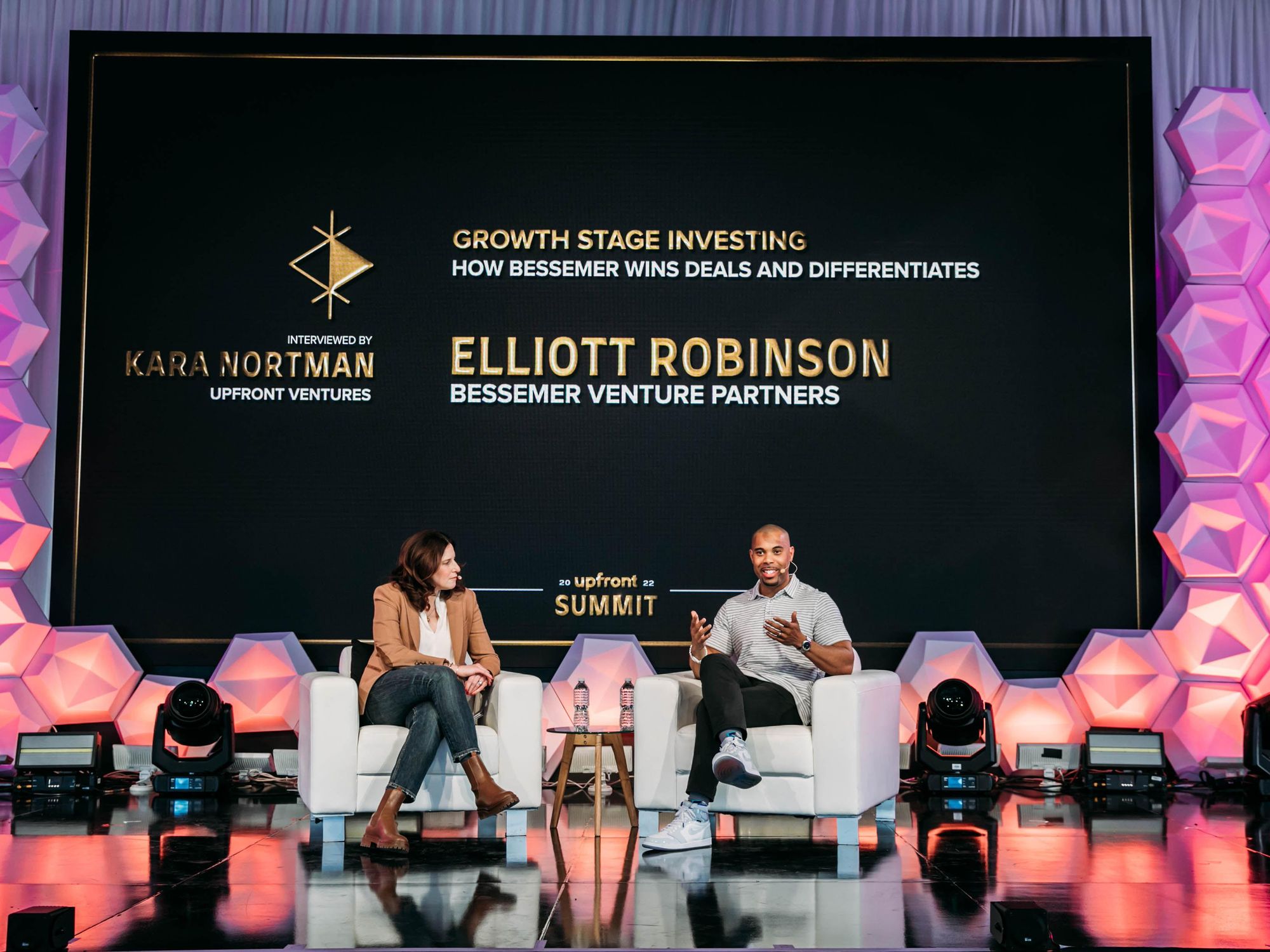Bessemer’s Elliott Robinson on Why Venture Capital Is Still So White—and How to Fix It
Samson Amore is a reporter for dot.LA. He holds a degree in journalism from Emerson College. Send tips or pitches to samsonamore@dot.la and find him on Twitter @Samsonamore.

Sign up for dot.LA's daily newsletter for the latest news on Southern California's tech, startup and venture capital scene.
In the wake of George Floyd’s murder in May 2020, the corporate world was forced to reckon with its responsibility to communities of color—and one of the industries with the most soul-searching to do was venture capital.
VC firms have tried to make strides toward racial equity in recent years, but for many of the industry’s leading Black investors, the changes have been mostly symbolic. Speaking at the Upfront Summit in Downtown Los Angeles on Tuesday, Elliott Robinson, a partner at Bay Area venture capital firm Bessemer Venture Partners, said many VC firms opted to make surface-level changes that didn’t alter their actual, white-heavy power structures.
“There's a lot of diversity BS in venture capital—there still is,” Robinson said in a conversation with Upfront Ventures partner Kara Nortman.

Addressing the mostly white crowd on hand at the conference, Robinson noted that “fundraising for Black [venture capital fund] managers is half of what it is for non-Black managers. So for all the [limited partners] in the room, you really do have to just ask yourself: Why is that?”
Robinson is a board member at nonprofit group Blck VC, which is working to double the percentage of Black investors and venture capital partners by 2024. Yet Blck VC’s targets in reaching those goals are still a relatively thin slice of the overall industry: only 6% and 4%, respectively (up from 3% and 2% currently).
Robinson said that in order to have more Black startup founders—who still struggle for a disproportionately low percentage of venture capital funds—it’s critical that those founders can find support among VCs who represent their same cultural interests. Yet Black partners on VC funds remain rare, while it’s even rarer for a Black person to be a limited partner investing in a VC fund.
“A decade ago, a lot of funds decided to change everyone's title to partner so they could [say], ‘Look at all these women partners and [people of color] they have’—but there's no economics, no check-writing authority,” Robinson explained. “I think there's five Black partners that can cut a check over $10 million in the country,” he added, noting that one of them was GV partner Tyson Clark, who unexpectedly passed away last year.
Robinson said that helping to change those dynamics in his chosen profession is a key barometer of “what success means for me” as a venture capitalist.
“It's being the best investor I can—such that I can have very honest conversation with LPs in the room who I admire and respect, but can also level the playing field so that my skin color or the fact that I went to Morehouse College does not impact my ability to invest in the brightest and best founders that will define the next generation of business,” he said.
- How Can L.A. Tech Promote More Diversity in Its Ranks? - dot.LA ›
- Black and Latinx Founders, Investors Are Missing in LA Tech - dot.LA ›
- COVID Clobbered LA's Tech Diversity Efforts - dot.LA ›
- PledgeLA Releases Report on Diversity in Los Angeles Tech - dot.LA ›
- LL Cool J, Paris Hilton and Laura Dern at Upfront Summit ›
Samson Amore is a reporter for dot.LA. He holds a degree in journalism from Emerson College. Send tips or pitches to samsonamore@dot.la and find him on Twitter @Samsonamore.





 Image Source: Tinder
Image Source: Tinder Image Source: Apple
Image Source: Apple